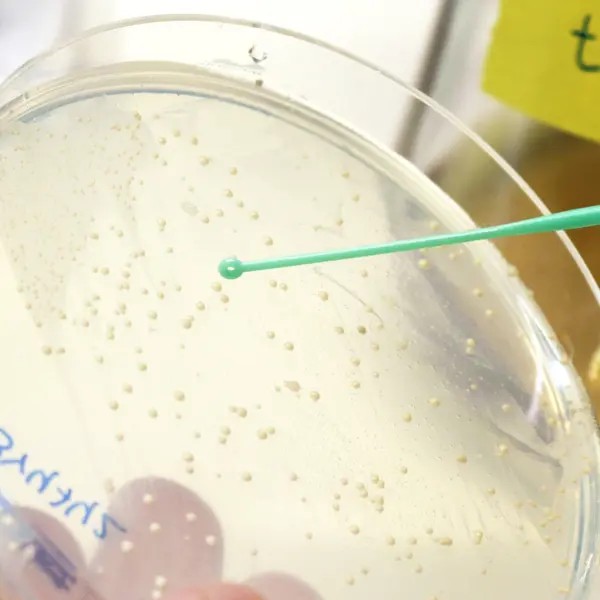
“I am convinced that Chalmers has the potential to become even stronger within health in the future and that this is one of the ways in which we can contribute to Sweden's ambition as a leading life science nation,” says Maria Asplund, new Director of Health Engineering Area of Advance at Chalmers.
Research in medicine and health is central to effective and high-quality healthcare, according to the Swedish government's updated national life science strategy. The strategy also highlights the importance of collaboration between academia, healthcare and industry to make Sweden a leader in life science.
At Chalmers University of Technology there are over 200 researchers active within health. Their contributions to today's and tomorrow's health and care include everything from digitalisation and AI, advanced research on infections, diagnostics and drug delivery, medical engineering, efforts for prevention, lifestyle and ergonomics, to the design of systems and environments for health and care.
To meet health related societal challenges, Health Engineering Area of Advance promotes interdisciplinary collaboration between Chalmers researchers, in close collaboration with the University of Gothenburg, Sahlgrenska University Hospital, Region Västra Götaland and industry.
New leader in health engineering
On 1 January, Maria Asplund, Professor of Bioelectronics at the Department of Microtechnology and Nanoscience at Chalmers, took on the role as the new Director of Health Engineering Area of Advance.
“I am very happy to be involved in developing health engineering at Chalmers. I am convinced that Chalmers has the potential to become even stronger within health in the future and that this is one of the ways in which we can contribute to Sweden's ambition as a leading life science nation”, says Maria Asplund.
Maria Asplund is active in the interdisciplinary field of bioelectronics and has for many years dedicated her research to exploring how electrical impulses can be used to improve or restore impaired functions of the human body. Along with her research colleagues, she has recently succeeded in showing how electrical stimulation can guide human cells to make wounds heal faster, and how thousands of tiny electrodes charged with electrical impulses can be used as vision implants in blind and visually impaired people.
Belief in the possibilities of interdisciplinarity
Prior to her time at Chalmers, Maria Asplund for more than ten years led a research group at the University of Freiburg in Germany, related to a large interdisciplinary research center Intelligent Machine-Brain Interfacing Technology, which combines life science, technology and clinical applications. And Maria believes that her experience in interdisciplinary research areas will contribute to the new role.
“It's about developing new networks around major medical issues where technology can contribute solutions. For example, in my own field of research, where electrodes can be used both to understand how Parkinson's disease develops and can be part of the treatment.”
“From my own research, I take with me a positive view of the great possibilities of interdisciplinary science as well as a clarity about where the challenges often lie. Thanks to the fantastic efforts of the previous Area of Advance leadership, there is a stable foundation to build on and it is an honour to take over the baton,” says Maria.
More collaboration areas
The ambition going forward is, among other things, to get even closer to the clinical field and to find more joint areas for collaborations with other actors.
“I hope and want the pre-clinical part to grow, i.e. research that has potential great clinical relevance but where important fundamental research questions remain that can be answered with an interdisciplinary approach. It can for example apply to collaborations in biological models and test platforms," says Maria.
"But also, to further develop the opportunities to utilise joint research infrastructure between Sahlgrenska University Hospital, the University of Gothenburg and Chalmers, and thus further strengthen our valuable collaboration."
"An important part of the upcoming work is of course also a strategy to increase our funds in order to be able to broaden our operations and realise our ambitions," says Maria Asplund.
Maria Asplund succeeds Ann-Sofie Cans, Professor of Chemistry and Biochemistry, who has led the Area of Advance in the assignment as Director since 2020 and has greatly contributed to Chalmers being established as a key partner in collaboration with other actors in healthcare.

